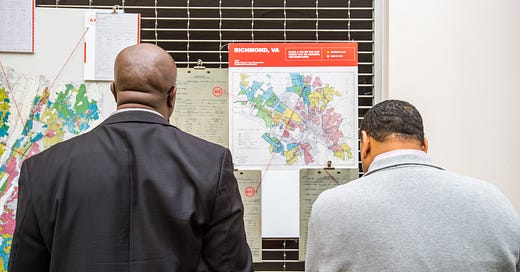IN BRIEF: Earlier this year, Housing and Urban Development (HUD) Secretary Scott Turner announced the agency would weaken the Affirmatively Furthering Fair Housing (AFFH) rule. This rule, rooted in the Fair Housing Act of 1968, requires state and local governments to take more intentional actions toward addressing housing discrimination and segregation to get federal funding. The new rule promoted by the Trump administration would allow these jurisdictions to receive federal funding without meaningfully addressing housing discrimination — undermining the rule’s purpose and the Fair Housing Act.
WHY IT MATTERS: Where you live impacts every aspect of your life, including what jobs you can access, where you and your children go to school, the types of food available to you, your access to hospitals and health care services, and so much more. Everyone deserves an equal opportunity to live in safe, decent, and affordable housing with access to the resources they need to thrive. That equal opportunity, free from discrimination, is the heart of fair housing. However, though we marked the 57th anniversary of the Fair Housing Act on April 11, housing segregation remains a deeply entrenched issue, and many Black communities are relegated to under-resourced neighborhoods.
These issues persist due to historical factors like redlining and contemporary practices like racial steering by real estate agents, racial discrimination by landlords, and appraisal bias. AFFH is a key tool to countering these practices and ensuring all people have access to homes in safe communities with the resources necessary to thrive.
ON THE HORIZON: As we reflect on the Fair Housing Act’s legacy, it’s important to continue to advocate for policies that help us live up to its vision of a country where an individual’s potential determines their opportunities, not their race or zip code. Without a strong commitment to enforcing and strengthening rules like AFFH, America risks further entrenching racial segregation in housing. Before finalizing agency rules, HUD must engage in a public comment period, giving any person who supports ending housing segregation and ensuring equal access to community resources the opportunity to make their voices heard.
A CALL TO ACTION: Before May 2, 2025, consider contacting HUD to let them know you support ensuring fair housing for everyone in this country. It’s critical to let the administration know that fair housing is essential for building a stronger, more equitable, and more prosperous country.
LDF AT WORK: The Legal Defense Fund (LDF) has a decades-long history advocating for fair housing and supporting the establishment and refinement of the AFFH rule — and has worked throughout various administrations to protect it. The organization’s Thurgood Marshall Institute (TMI) has also worked to educate the public on the issue. For example, former HUD Secretary Julián Castro, who served as a TMI senior fellow in 2022, authored a five-part series on affirmatively further fairing housing in Los Angeles County.
The organization will continue to fight against any efforts to limit access to fair housing for Black communities.






